You may have heard of a few horror stories, or perhaps you liken winter camping to an Everest expedition. It’s true that if you are unprepared for camping in the winter, you could be risking your life. Yet, avoiding a number of these risks is easy.
To survive winter camping, you need to pack reliable, warm gear. You must also consider eating high-carbohydrate food and stay hydrated. Additionally, it helps to understand the environment you’re camping in and learn basic first aid, fire starting, and navigational skills.
Before describing how to avoid death on a winter camping trip, it’s important to be aware of the risks of winter camping. In this article, we describe exactly what you may face and how to avoid it!
Understanding The Risks of Winter Camping
It’s important to understand what you are at risk of when camping to avoid injury and, at worst, death. Below is a detailed list of medical, weather, and situational risks that could be life-threatening.
1. Hypothermia
One of the greatest risks of winter camping is hypothermia. Hypothermia occurs when the body loses heat faster than it can produce heat.
Our bodies run at 98.6 F, and a dangerous drop to 95 F could cause hypothermia. Campers not dressed appropriately come unprepared or get wet and risk catching hypothermia.
This can threaten both the brain and the body.
2. Frostbite
Frostbite is a serious injury that can occur during winter camping. It freezes the skin and underlying tissue as the body stops circulating blood to certain parts of the body to keep the rest of it alive.
Frostbite is most common in the ears, cheek, nose, hands, and feet. Campers that fail to dress in warm clothing that covers these areas are more likely to experience frostbite.
Frostbite is the beginning of the body freezing to death. Left untreated, it can lead to amputation of body parts or death.
3. Tent Placement
When the snow starts falling, you want to be questioning if your tent is in a safe spot.
For example, if you decide to pitch your tent up underneath a tree, and it begins to snow, you could risk injury from the build-up of snow on the lower branches that then falls onto your tent.
Every tree is different; with this, they may hold more or less snow that could land on your tent.
4. Carbon Monoxide Poisoning
It can be tempting to cook inside your tent or start a heater to keep the tent warm when it’s seriously cold outside.
CO2 poisoning has led to an estimated 400 deaths and up to 4,000 hospitalizations annually in the USA. These statistics are not just associated with camping, but a proportion is.
A 4 season tent is extremely insulating, and if you decide to burn gas inside your tent, you can see how carbon monoxide poisoning can occur.
5. Avalanches
Avalanches can be fatal if you are not found within 45 minutes of being covered.
Winter camping can involve pitching up in precarious spots, and the risk of avalanches can be common in mountaineering camping.
Most national parks put up an avalanche warning on their sites if the risk of them occurring is higher, but not all avalanches can be predicted.
Winter campers need to be aware of their camping space and what the weather might do to it.
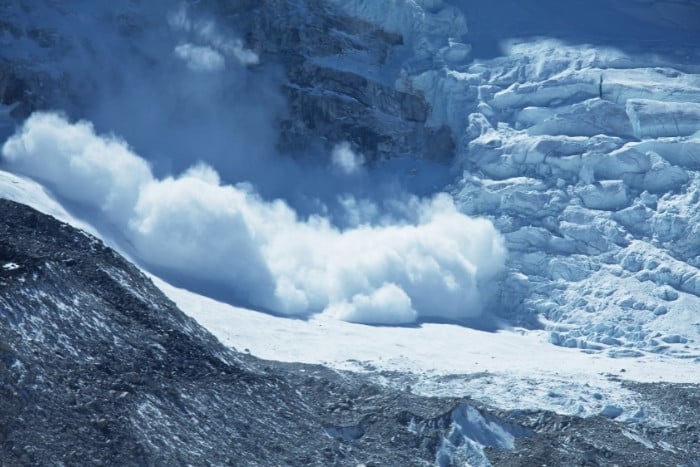
6. Falls
Believe it or not, falls are a common risk of winter camping.
Uneven ground or lack of visibility could lead to a fall that could cause serious injury or death, especially if you decide to stray too far from your tent for a wee in the night.
Winter campers are often advised to understand their environment or wear a head torch to avoid this.
7. Dehydration
Dehydration can be fatal. If you’re camping in temperatures below freezing, it could be that your water freezes. Dehydration is a serious risk if you cannot access water during your camping trip.
Yet, you may also be unaware of how dehydrated you are. Cold weather can cause some people to urinate more and increase the speed of dehydration.
Those experiencing dehydration may have a headache and become dizzy or tired.
8. Getting Lost
Surroundings can change drastically during a snowstorm, and it’s not uncommon for campers to lose their bearings.
Becoming lost while camping can have serious repercussions if a camper is not prepared. Survivalist skills such as shelter and fire building, navigation, and water sourcing can save a camper’s life if they get lost.
9. Animals
Wherever you are camping, you’re likely sharing the space with some wild animals. They could be small, like hares, or bigger, like coyotes.
Animals can be a risk while camping in the winter because food sources are more scarce. If food is not stored correctly inside a tent, there is a chance you’ll get wild visitors that could harm you.
10. Fire Hazards
A campfire can bring warmth and togetherness to any camping trip. However, the last thing you need is your campfire setting your tent alight.
This is also a hazard when campers have decided to cook in their tents.
When it’s cold outside, the temptation to move your tent closer to your fire might be strong, but this is a huge risk you need to be aware of when winter camping.
How Do I Survive Winter Camping?
As you’ve read above, winter camping can be dangerous, so it’s best to be as prepared as possible.
Below are 20 survival tips for winter camping, from packing reliable gear to understanding your camping environment. We’ve got easy-to-follow solutions to any risks associated with winter camping.
1. Wear Layers
Wearing layers is more effective in regulating your body temperature than just wearing one thick layer. With layers, you can easily add on or take off, depending on how warm or cold you are.
Opt for layers that are breathable yet insulating. These will keep you from getting cold from your sweat.
2. Pick a 4-Season Tent
You need to ensure you pack for the weather, and one of the most important gear for winter camping is a 4-season tent. These tents handle snow, high winds, and low temperatures.
If you want to avoid the hazards that the weather could bring, then use a 4-season tent!
3. Pack Reliable Gear
The last thing you need is your sleeping bag zipper to break or your cooking stove to not light.
Sometimes these mishaps can’t be avoided, but buying gear from trustworthy manufacturers is better than testing it first.
If you’re wondering how to judge if camping gear is reliable, ask how durable it is, how portable it is, and if it’s made from quality materials.
4. Choose a Campsite with Amenities
You can avoid life-threatening situations during winter camping by choosing a campsite with useful amenities such as heated prep rooms, hot showers, or electrical hook-ups.
These amenities make camping more accessible and help you avoid risky situations by helping you to keep warm in the cold.
5. Eat for the Cold
The best thing about winter camping is the excuse to eat! We don’t mean eating till you’re sick, but you will need to consider eating plenty more to account for the calories you’re burning in the cold.
Choose foods high in carbohydrates, as these can easily be converted to energy. Also, eat a snack before bed, keeping you warm throughout the night.
6. Hydrate
When you’re winter camping, your body is already working harder to keep up with the temperature, and the easiest way to help your body keep those energy levels is to hydrate.
Ensure your water bottle has an insulation sleeve so it won’t freeze.
7. Fire Starter Skills
It’s best to have some skills in fire starting. This includes building fires and how to light them.
If your cooking stove breaks, it’s important to have a plan B. Firestarter skills are priceless, as you can use them year-round.
8. Know the Environment
Understanding your environment entails knowing the terrain, how cold it can get, how your environment might change in severe weather or snow storms, and where is the safest space to camp with this knowledge.
Research the environment you’ll be camping in before you set out, and you can be sure you’ll sleep easier at night.
9. Choose Thermals
Thermals are crucial for winter camping. The smart material draws out moisture from your skin, keeping you dry. It’s also insulating, so you keep warm.
You can purchase thermals in a range of sizes and thicknesses. You can also choose from silk, wool, or synthetic fabrics.
10. Pack Hand Warmers
Hand warmers don’t take up much room in your backpack and are extremely effective in warming you up quickly. You can slip these warmers into your sleeping bag or pop them in your coat!
They are also easily activated by popping a metal bar in the middle.
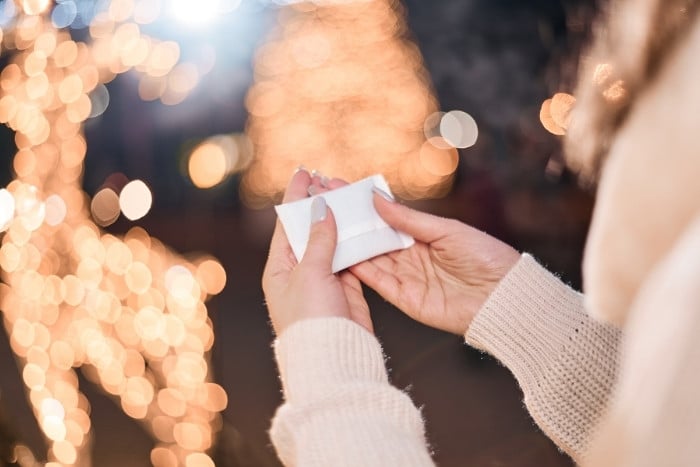
11. Check the Weather
When winter camping, it is crucial to always check the weather before setting out on your trip. If snow storms or severe weather is forecasted, it’s best to rethink if camping is a good idea.
If you’re planning to camp in a national park, camping warnings will usually be issued on their homepages. Follow this advice because it could easily save your life.
12. Learn Basic First Aid
First aid can save your life, whether cleaning a cut properly, fixing a broken bone, or treating sunburn (which is possible even in the snow).
These ailments may not seem life-threatening, but they could be if you experience them during winter camping. With an injury, you will likely be more tired and use more energy to repair yourself.
First aid could give you enough time to get to a doctor or hospital.
13. Understand your Limits
I always like a challenge, and I find it hard to admit I’m incapable of something. But this is different whenever I go camping.
When you’re winter camping, it is essential that you understand your limits, as stretching them could land you in a tricky situation.
Consider your age, physical limits, and medical needs, as this could save your life!
14. Sleep off the Ground
Sleeping directly on your tent floor can rob precious calories and energy. You can avoid this hazard by sleeping on a sleeping pad (or two) or using a tent hammock or cot.
These minimize how much heat you lose while you sleep and prevent you from getting cold at night.
15. Bring a Friend
Taking a friend camping can make your winter experience more social and safer! Not only does your friend make your tent warmer, but they can also help you if you get into a sticky situation.
Taking a friend along could save your life!
16. Don’t Hold in Your Pee
When nature calls, answer! According to the Sierra Club, holding your pee in burns unnecessary calories as your body prevents it from cooling inside your bladder.
You want these calories elsewhere! You can avoid venturing outside for the toilet by having a labeled pee bottle inside your tent.
17. Stay Dry
To avoid hypothermia on your winter camping trip, stay as dry as possible. Pack extra clothes to avoid any scenario where you’re wet, as warming up or drying clothes on your trip may not be possible.
Make sure you wear waterproofs if you’re camping in the snow.
18. Learn to Navigate
Winter camping can involve camping in terrain that is extremely changeable. After a peaceful night of sleep, you may wake to see that snow has completely altered your surroundings.
It’s crucial to be able to navigate if you get lost. This includes map reading and compass skills.
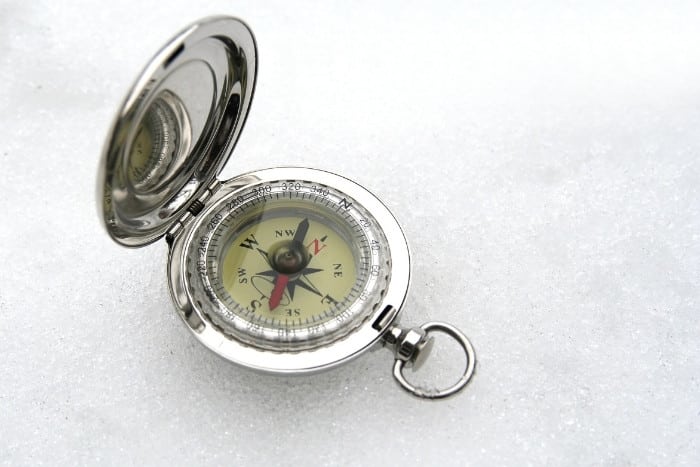
19. Pack the Snow
The ground beneath your tent can steal a lot of heat during the night. If you’re camping on snow, your body heating can easily melt loose snow that you’re lying on.
It’s then likely that you’ll be sleeping on uneven ground and not sleeping well. Tiredness can kill, so make sure you pack snow tightly before you lay out your tent.
10. Don’t Cook Inside your Tent
This may seem obvious, but it can be extremely tempting to cook inside your tent if you are camping in freezing temperatures.
This is extremely dangerous, not only due to your flammable tent material and fire but also because of the risk of carbon monoxide poisoning.
Cook simple and fast meals, so you don’t have to cook outside for long!
Final Thoughts
We believe you are now prepared for a winter camping trip with this article! If it’s likely to be your first, then make sure you plan and pack for any scenario.
It’s best to have a shorter trip while you work out the kinks! Before setting up on any winter camping trip, make sure you know all the risks and understand how to counter them!

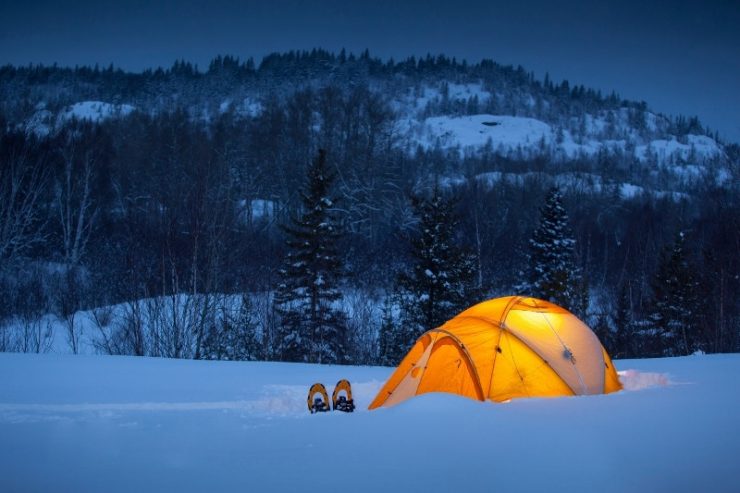

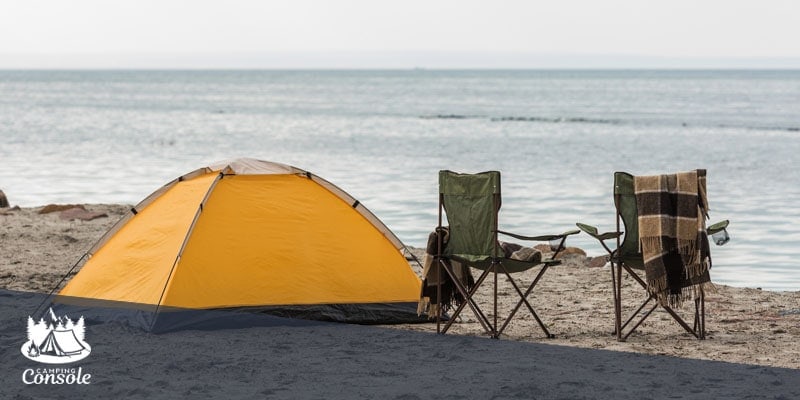
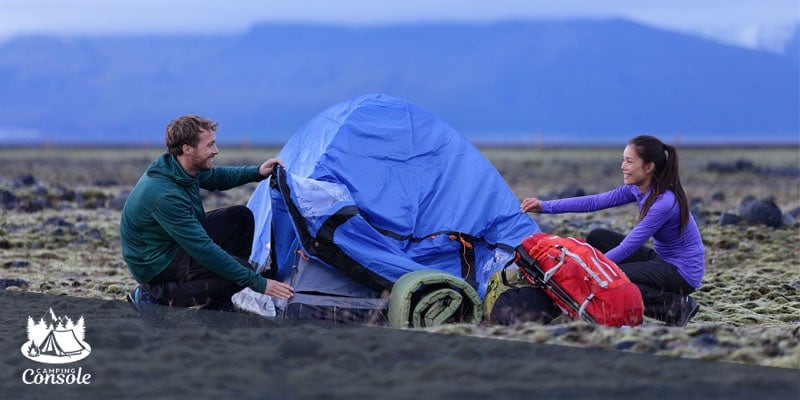
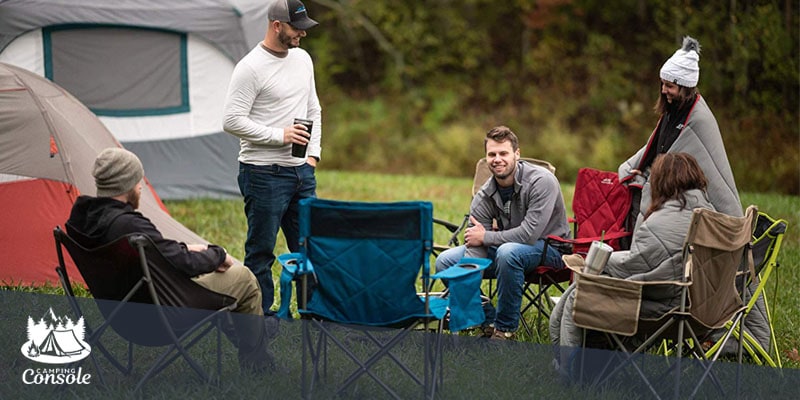
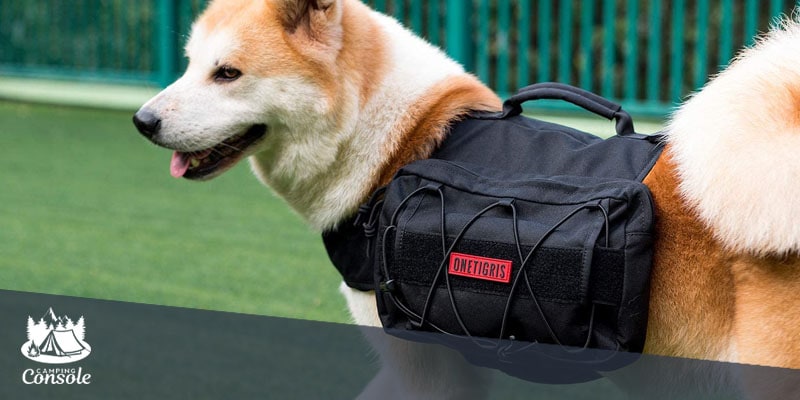


Add comment